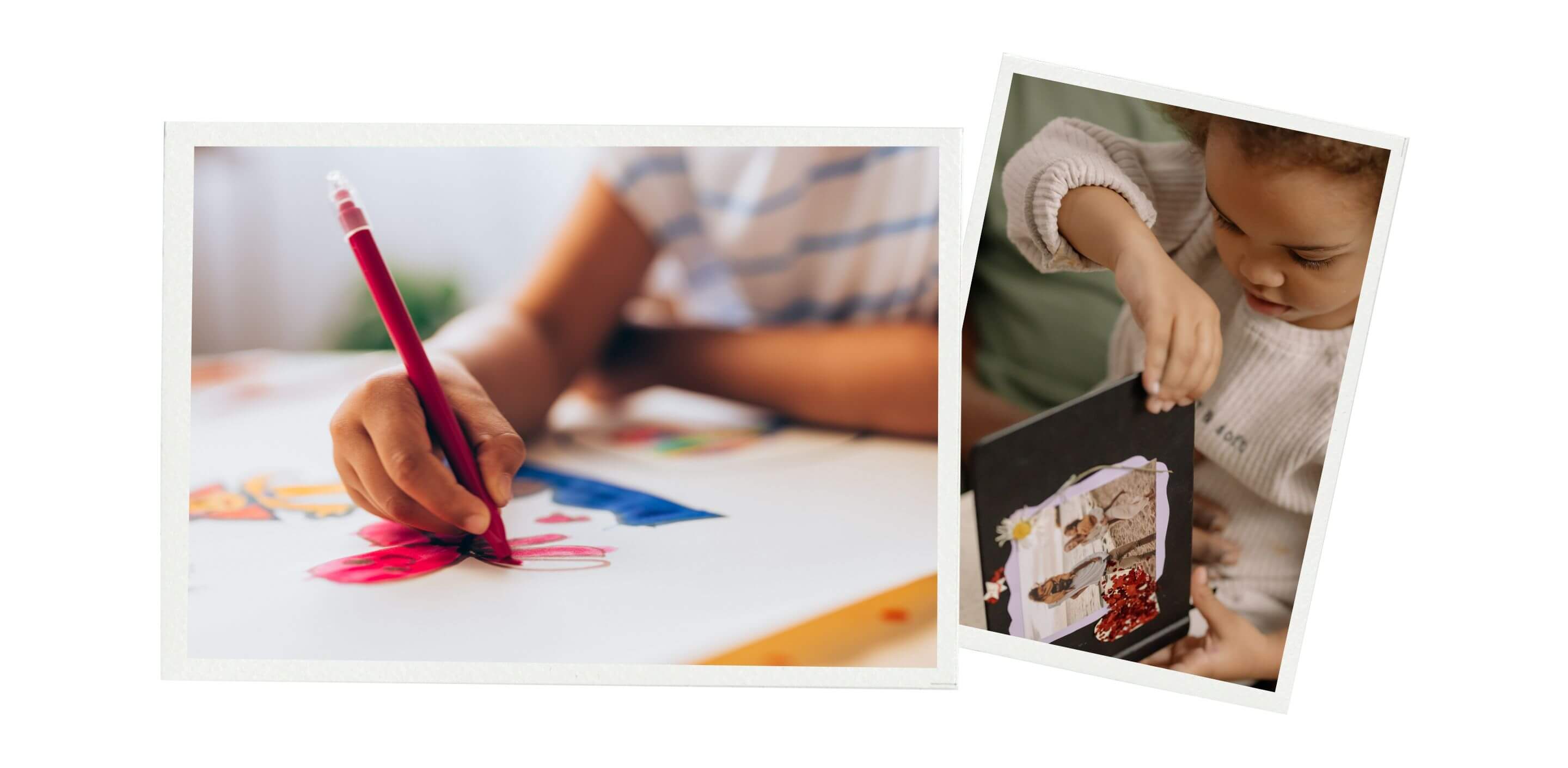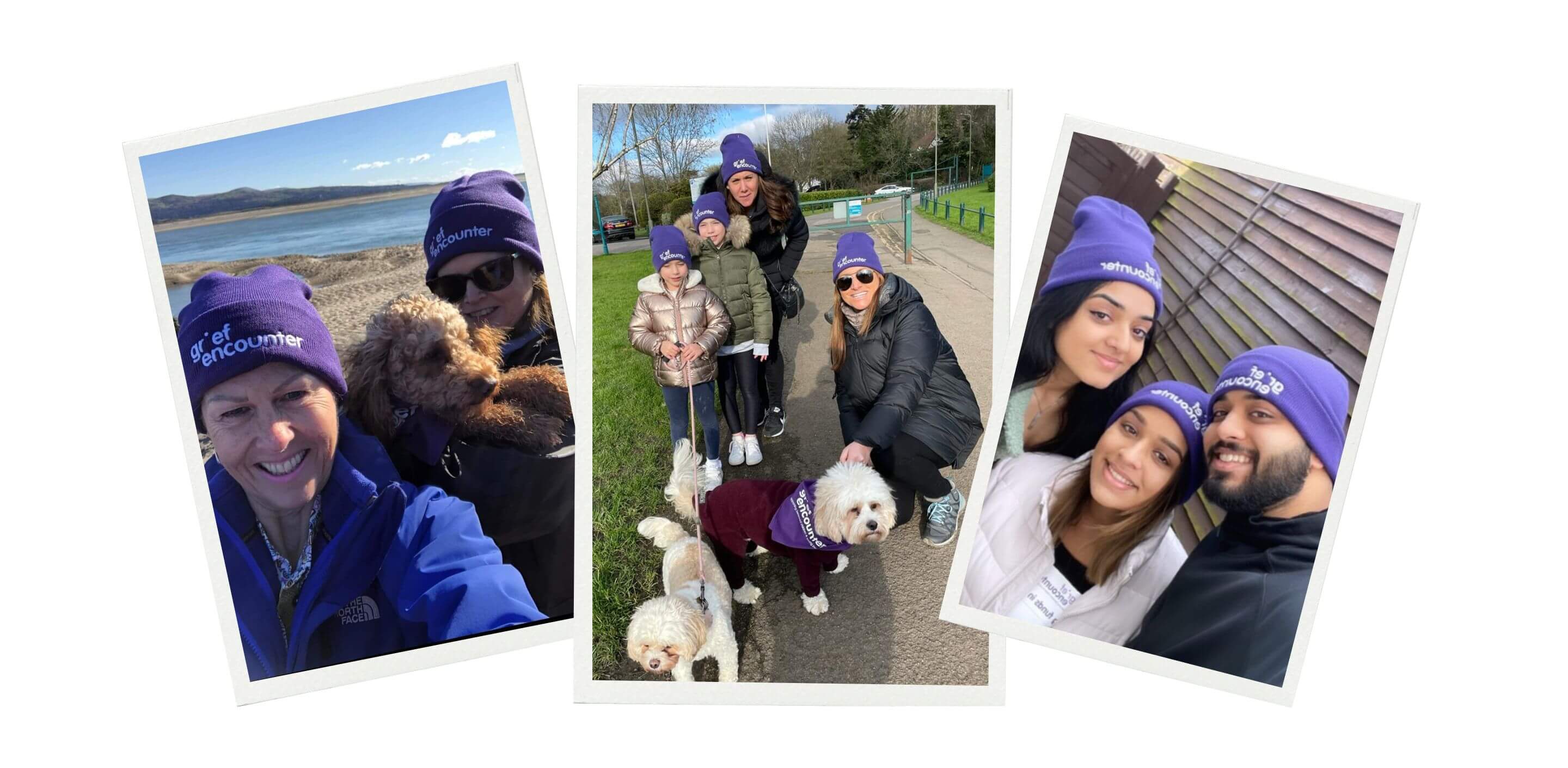Whether they are grieving the death of someone in the family, a friend, someone they knew in school, or a pet, helping a child remember a loved one who has passed away is an important and delicate task. Every child will cope with the death of someone close in their own way, but through our work with Grief Encounter, we’ve explored some practical tips you can use to help them work through their grief.
Offer the child reassurance, love, and support
Make sure you tell them that you love them, that they’re not alone, and that they can talk to you (or another trusted relative or friend) whenever they need to. A child’s sense of safety can be shaken entirely following the death of someone close to them. Naturally, there might be a heightened fear that you or other people in their life might die. While you can’t promise that it won’t happen (and it’d be unfair to do so), you can reassure them in the best way you can.
Create a safe space for treasured memories
Encourage them to express their feelings creatively, as this can help them process and make sense of loss. You could build a memory box or photo album together, or they could write a letter to the person they’ve lost. Or they could start a diary and write down how they feel each day. Creative outlets, such as painting, drawing, or writing songs or poems, are excellent ideas too.

Build new routines and rituals
Rituals are always a good way to process grief, whatever your age, and are especially important on occasions like Christmas or birthdays. They offer tangible ways to acknowledge grief while honouring the memory of those who have died. Ritual and routine ideas include visiting somewhere special to the person they’re grieving, like a nice walk or a favourite café. It can be a notion as simple as taking some quiet time to reflect or sharing stories about your favourite memories with them.
Help is out there – charities like Grief Encounter do amazing work
We’re incredibly proud to be partnered with Grief Encounter. This incredible charity helps children deal with the confusion, fear, loneliness and pain when they experience grief. They provide a lifeline to children and young people, helping them cope with free and immediate one-to-one support. Their services include:
- One-to-one counselling
- Group workshops
- Music, art and drama therapy
- Residentials and family fun days
- A national, free, and confidential helpline and instant web chat called grieftalk
- Bespoke support for schools, universities, and colleges
- A dedicated Trauma Team for help following a sudden or traumatic bereavement.
To find out more, please visit their website: https://www.griefencounter.org.uk/
Sign up for an organised event that remembers lost loved ones
We’re proud sponsors of Grief Encounter’s Forget-Me-Not Walk 2024, a beautiful event where hundreds of people up and down the country will walk in memory of a loved one to raise funds for bereaved children, young people and their families. This could be a lovely activity for you to do in the memory of someone special, to do good in their name. Find out more about the Forget-Me-Not Walk 2024.

Give the child space and time to grieve in their own way
Listen to the child and let them share their stories and emotions. Let them ask questions and answer their questions as best as you can. Focusing on listening and being there for emotional support will make a massive difference as they work through the grieving process. If they’re blaming themselves or feeling guilty (a completely normal feeling and emotion for children), reassure them they aren’t to blame.
Be vulnerable and open yourself
Don’t be afraid to open up and share experiences about your life – incidents when you might’ve been sad, scared, angry or frustrated. Tell them about how you got through it and what you learnt. Children look up to the important people in their lives and love to hear stories about when they were children. Sharing stories like this will help a child normalise their feelings and what they’re experiencing.
Seek professional help if you’re concerned
If your child is still struggling over a prolonged period, don’t hesitate to reach out and explore different options for professional help. Keep an eye out if they feel depressed or anxious, are withdrawing from family, friends, and activities, struggle to sleep or refuse to go to school. Seek help immediately if they are turning to self-harm or expressing suicidal thoughts.
We hope this blog has helped offer some sympathetic and practical advice about helping a child remember a loved one.

